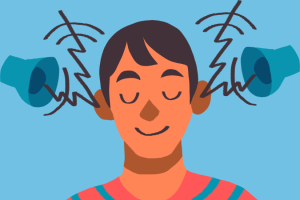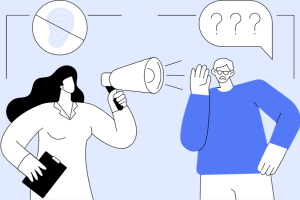Exploring Your Hearing Health with a Self-Assessment Quiz
Have you ever found yourself straining to catch a whispered conversation or frequently asking others to repeat themselves? Does the world sometimes feel muted, making it harder to enjoy everyday conversations or the symphony of life’s sounds? If so, you’re not alone. Hearing loss can affect people of all ages and backgrounds, and its gradual onset often goes unnoticed until it begins to impact daily life.
Why Hearing Matters
Hearing isn’t just about volume — it’s about clarity and richness. Healthy hearing allows us to enjoy birdsong, engage in effortless conversation, and appreciate the small sounds that bring our world to life.

Hearing loss is complex and can show up in different ways:
-
Conductive hearing loss: Sounds may seem muffled or distant, making it hard to understand speech or hear household noises.
-
Sensorineural hearing loss: You might struggle with high-pitched or low-pitched sounds, experience distorted audio, or notice a persistent ringing or buzzing (tinnitus).
-
Mixed hearing loss: A combination of both types.
Because these changes are often subtle at first, a simple self-check can help you notice early signs.
Self-Assessment Hearing Quiz
For each question, choose the answer that best describes your experience:
-
Do you often ask people to repeat themselves during conversations?
-
Do you have difficulty understanding speech in noisy environments (e.g., restaurants, parties)?
-
Do you find it challenging to hear the television or radio at a volume comfortable for others?
-
Do you have trouble hearing the doorbell or phone ring?
-
Do you often turn your ear toward someone to hear them better?
-
Have family or friends expressed concern about your hearing?
-
Do you experience ringing or buzzing in your ears (tinnitus)?
-
Have you been exposed to loud noises through work or hobbies (e.g., construction, concerts, shooting)?
-
Do you have a history of ear infections or ear-related health issues?
-
Do you struggle to hear soft or whispered speech, even in quiet places?
-
Have you noticed difficulty hearing high-pitched sounds, like birds or a tea kettle?
-
Do you misinterpret what others say, leading to misunderstandings?
-
Have you noticed trouble hearing low-frequency sounds, such as deep voices or bass in music?
-
Do you avoid social events because it’s hard to follow conversations?
-
Have you experienced dizziness, balance issues, or ear pain with hearing changes?
Answer each with: Never / Occasionally / Frequently / Always.
👉 Count how many times you answered “Frequently” or “Always.”
If you checked several, it may signal a potential hearing issue.

What Normal Hearing Sounds Like
-
Birds chirping — clear and crisp, each chirp distinct
-
Conversation — speech easy to follow without asking for repeats
-
Door closing — a sharp, solid sound
-
Car passing by — smooth, with pitch changing as it moves
-
Baby laughing — clear and distinct giggles
What Hearing Loss Might Sound Like
Conductive hearing loss:
-
Speech sounds muffled or far away
-
Soft sounds like water running or a doorbell seem faint
-
Whispers are hard to catch
Sensorineural hearing loss:
-
High-pitched tones (birds, alarms) fade or distort
-
Low tones (deep voices, thunder) are unclear
-
Sounds may seem tinny or distorted
-
Tinnitus — ringing, buzzing, or hissing — is present
Why Follow Up Matters
This quiz isn’t a diagnosis. It’s a tool to help you notice possible hearing changes. If you scored several “Frequently” or “Always” responses — or if friends and family have voiced concerns — it’s wise to book a hearing check with an audiologist or ear, nose, and throat (ENT) specialist.
Early detection can make a big difference in treatment options and preserving your quality of life. PRIME












Leave A Comment